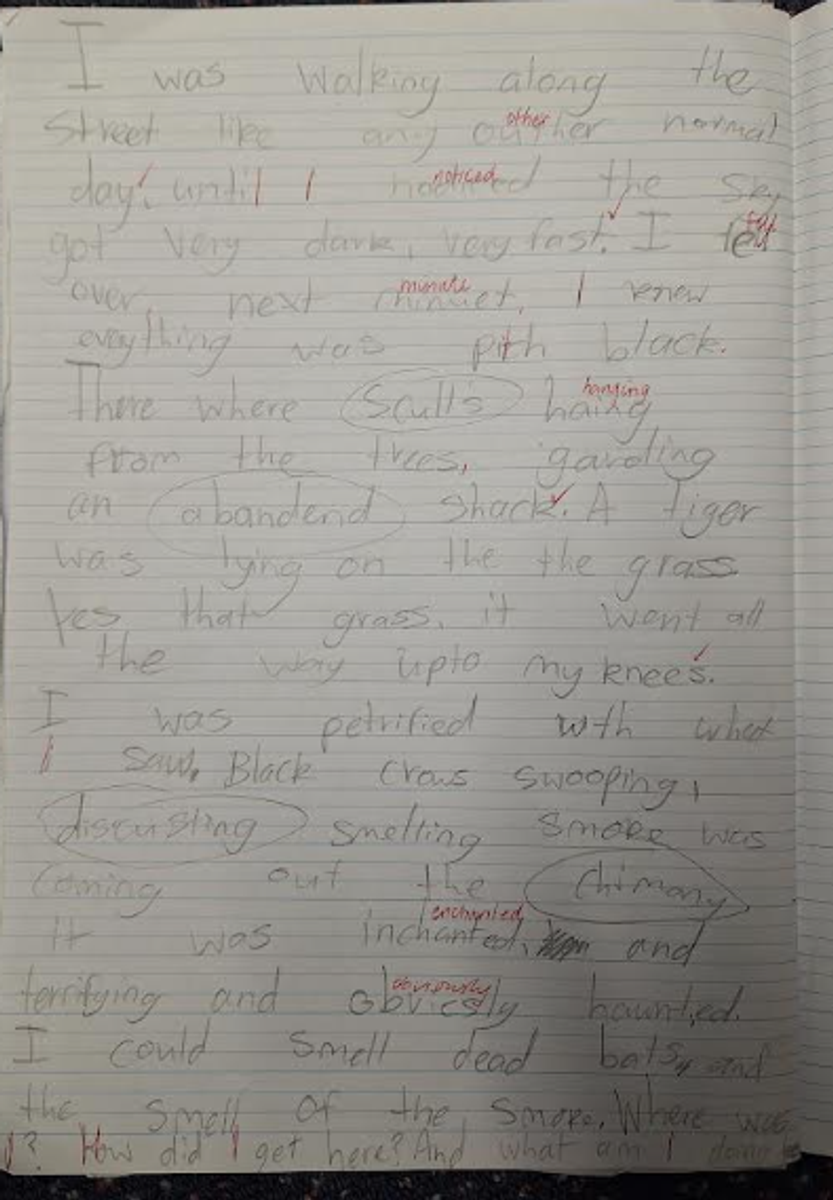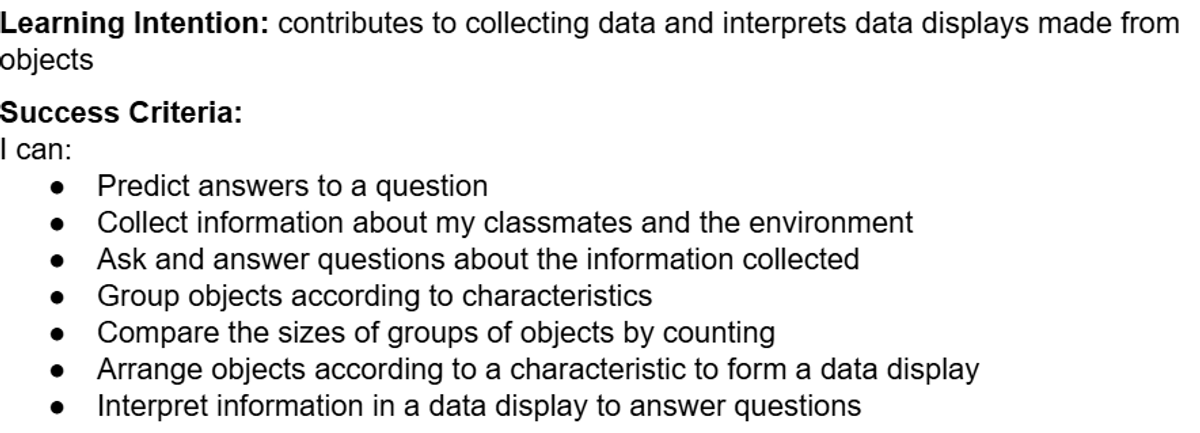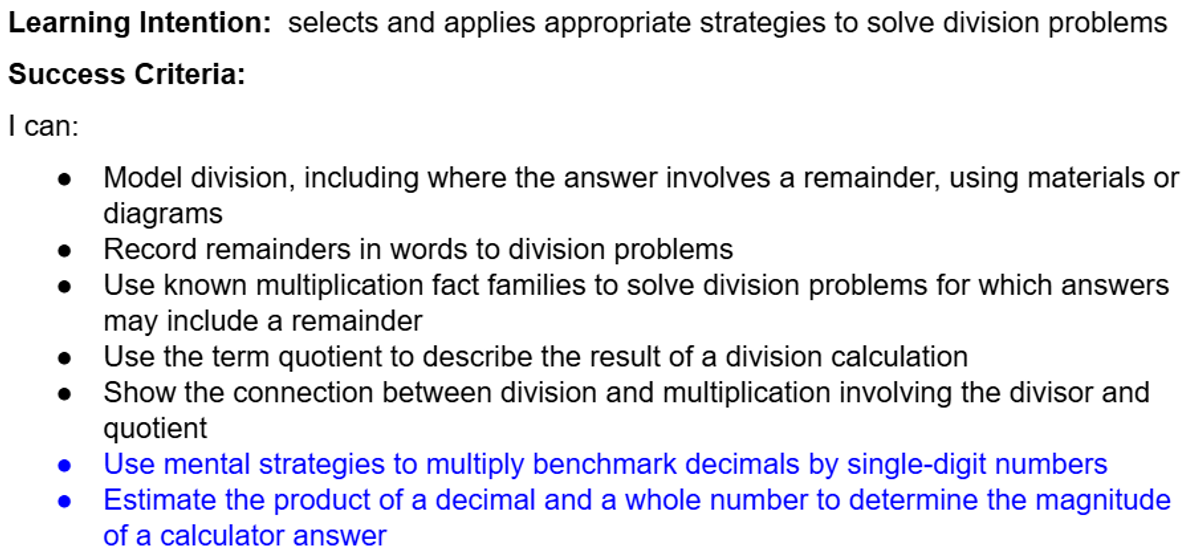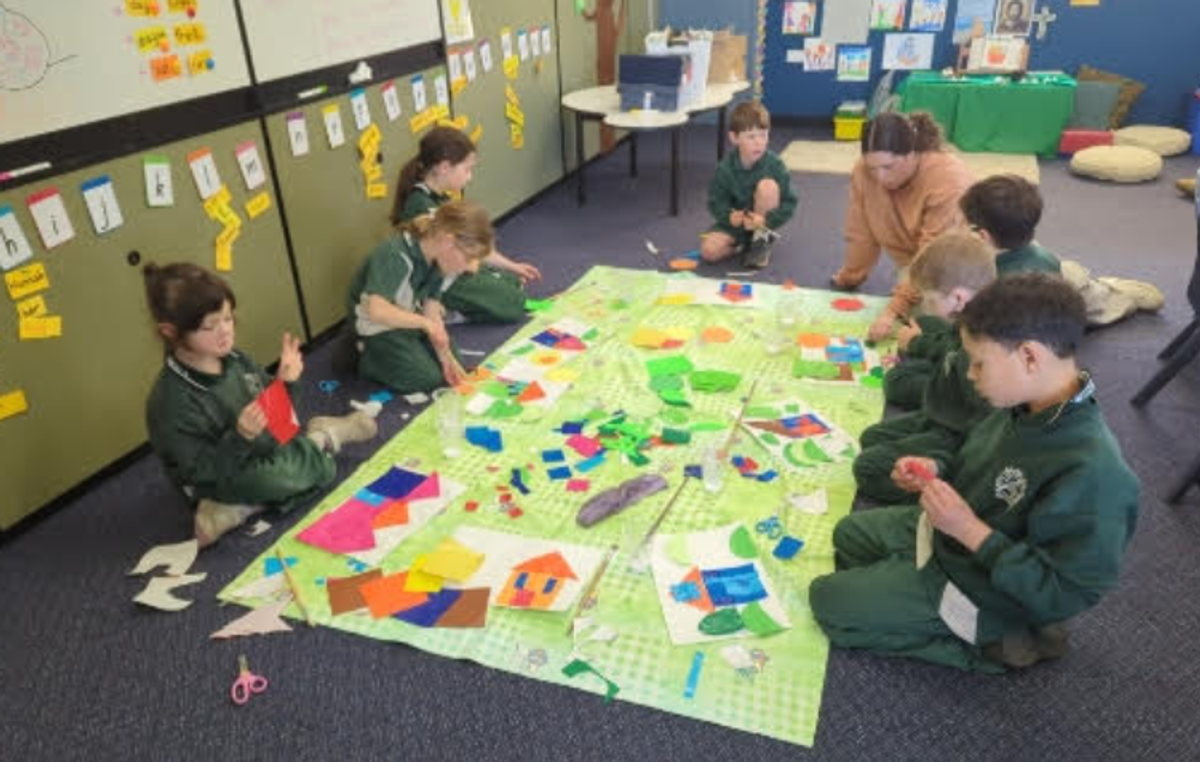The Learning Zone
Libby Lockwood
Assistant Principal & Leader of Pedagogy

The Learning Zone
Libby Lockwood
Assistant Principal & Leader of Pedagogy
This fortnight our amazing young people have been creating written texts. There focus has been on writing Literary Descriptions. Literary Descriptions use high level language to describe a setting or character.
Check out the amazing work of our Stage 2 & 3 authors!








Early Stage 1 - Data - Weeks 6 7


Tips for Parents:
Together with your child, keep track of the time they spend watching TV or using their device. At the end of the week, see if you can make a simple display of each day of the week and the time spent using their device or watching TV.
Play games such as ‘paper, scissors, rock’ and record wins and losses.
With your child, read and collect information about their favourite sports teams. This could be their own weekend sport teams.
Collecting data together about something that you both find interesting. For example, what kinds of pets are most popular with your extended family or friends?
Designing a simple data display from blocks, pegs or counters to represent the data gathered. For example, 5 blocks mean there are 5 dogs, 3 blocks for 3
cats, one block for a rabbit and 6 blocks for 6 birds
Asking questions to understand and make meaning from your data display. For example, What pet was the most popular? What pet was the least popular?
Stage 1 - Forming Groups (Division) - Weeks 6 - 8






Tips for parents:
In Division B, your child will begin to understand division as sharing and grouping. There are many easy ways you can support this at home.
Ask your child to practise division by sharing objects equally. For example, share 8 objects into 2 equal groups. Using objects such as your child’s toys, items of food, or buttons helps them visualise what the calculation means and keeps them interested.
Ask your child to find out how many objects there are to begin with. Can they share the objects equally between the two of you? Help them to share objects one at a time between the two groups. When all the objects have been shared, ask your child how many there are in each group. If you have the same number, explain that your child has shared the objects equally into two groups which is the same as dividing by two.
If you do not have the same number, ask your child if the objects have been shared equally. For example, “We started with 11 objects and shared them into two groups. I have 6 objects and you have 5 objects. Are they equal? If they are not equal then 11 cannot be shared equally into two groups so 11 cannot be divided by 2 equally using whole numbers or objects.”
Stage 2 - Partitioned Fractions - Weeks 5 - 7








Tips for parents:
Article from the Institute of Education Sciences on learning about fractions at home.
Stage 3 - Multiplicative Relations - Weeks 6 - 8






Tips for parents:
Use Farm and Outdoor Examples: Incorporate division into everyday rural activities:
Gardening and Farming: Have your child help divide seeds into rows for planting or distribute harvested vegetables equally into baskets, emphasising remainders.
Livestock Management: Ask them to calculate how many animals can be placed in each pen, showing how remainders work when some animals don't fit evenly.
Cooking and Baking: Use recipes to divide ingredients for baking, such as cutting a pie into slices and determining how many slices each person gets.
Use tangible objects and drawings to make division concepts clear:
Manipulatives: Use farm-related items like grains, pebbles, or small tools to model division problems and illustrate remainders.
Drawings and Diagrams: Encourage drawing diagrams (e.g., grouping objects or making arrays) to represent division problems visually. Sketch out fields or garden plots to show how items can be divided.
Graph Paper: Use graph paper to help create organised and accurate models of division, such as dividing a plot of land into sections.
Use Real-Life Examples and Practice
Incorporate real-life examples and practice opportunities to make learning relevant and engaging. Examples:
Shopping and Budgeting: When shopping, ask your child to calculate the total cost of multiple items using benchmark decimals (e.g., ‘If one apple costs $0.75, how much do 5 apples cost?) Practice estimating costs before using a calculator to check the accuracy of their mental calculations.
Cooking and Baking: Use recipes to help your child practice multiplying and dividing decimals by powers of 10 (e.g., ‘The recipe calls for 1.25 cups of flour. If we need to make 4 times the recipe, how much flour do we need?’) Compare the place value of digits before and after multiplying or dividing to reinforce understanding.
Our Early Stage 1 students have been exploring People and Places as part of their Geography unit. Students are asked three big questions to investigate:
What are places like?
What makes places special?
How can we look after the places we live in?
They are asked to identify important places, identify important places to Aboriginal and Torres Strait Islander People and locate these places.


There has been some alternations made to the days that our young people attend Library. Please see the changes below to ensure that bags are brought for borrowing on these days.
Monday - Stage 3
Tuesday - Stage 2
Wednesday - Early Stage 1 and Stage 1
This is the last term to complete the Premier's Reading Challenge, which closes on Friday 19th September 2025. Please complete reading records on the website prior to this date. Please contact the office if you require any help with this.